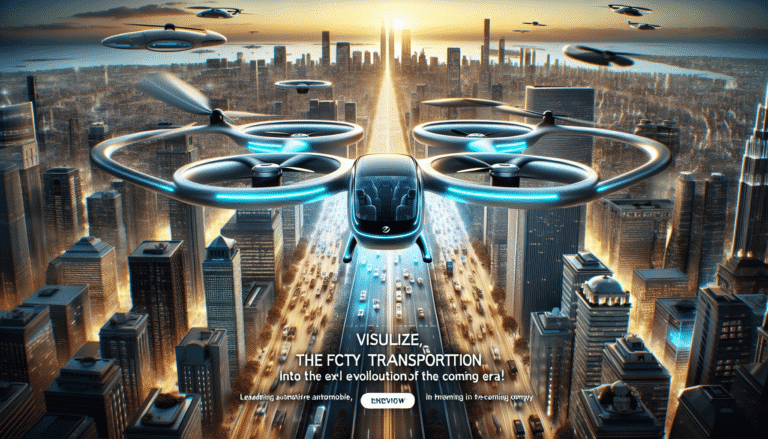Movilidad Sostenible: The Future of Ecological Transport

Sustainable mobility has become a fundamental pillar in the development of a more ecological and responsible future. In a context where climate change and pollution are critical challenges, it is crucial to rethink our transportation models. The adoption of practices that promote energy efficiency and the use of alternative energies becomes an urgent necessity to mitigate environmental impact and foster a healthier quality of life in cities.
Sustainable mobility is a concept that has gained relevance as cities and the world, in general, face challenges related to climate change and pollution. This article explores the various facets of sustainable mobility and its crucial role in creating a more ecological and responsible future. From the importance of using eco-friendly transportation to emerging technologies, it will be discussed how these practices can transform into paths toward effective eco-mobility.
Eco-Friendly Transport: Paths to Eco-Mobility
Transportation is one of the sectors with the highest energy demand, representing 38% of the total energy consumed in Andalusia and generating 63% of CO2 emissions. Many of these emissions come from journeys in motor vehicles. The transition to a sustainable transportation system is, therefore, essential to reduce environmental impact. Adopting alternatives such as walking, using the bicycle, or utilizing public transport not only helps to decrease energy consumption but also improves quality of life in cities.
Diversity of Transportation Options
Today, the market offers a variety of vehicles that use alternative energy sources to fossil fuels, minimizing CO2 emissions. These vehicles include:
The choice of a vehicle should align with its intended use, also considering its energy efficiency and the type of sustainable fuel that best fits daily needs.
Technological Innovations in Transportation
The implementation of renewable technologies in the transportation sector is key to achieving a sustainable future. New solutions are being developed ranging from electric vehicles to innovations in engines that run on hydrogen. These technologies will not only reduce the cost associated with fuel but also significantly decrease polluting emissions. However, it is essential to address the challenges these solutions present, as can be read in the analysis of hydrogen issues, available in this article here.
Towards a Global Commitment to Sustainability
The fight against climate change requires a global commitment to sustainable transportation. This means that both governments and citizens must work together in urban planning, promoting the creation of adequate infrastructures for the use of eco-friendly transport means. Additionally, education and awareness about responsible mobility is vital to promote changes in the daily habits of the population.
Investment in low-impact technologies will not only save on fuel but also contribute to a healthier urban environment. Undoubtedly, the future of transportation is intertwined with a proactive approach to reducing fuel expenditure, as detailed in the article on how reducing fuel expenditure contributes to the SDGs, which can be read here.
Conclusions on Sustainable Mobility
Sustainable mobility is more than a trend; it is an urgent necessity in light of the environmental degradation we face. Implementing changes in the way we move not only benefits the environment but also improves the quality of life in our communities. As innovative solutions continue to be developed and responsible alternatives in transportation are promoted, it is clear that sustainable mobility is the way forward towards a more ecological and just future for all.
Sustainable Mobility: Towards a Responsible Future
The concept of sustainable mobility has become essential in the current context, where environmental challenges and pollution are increasingly concerning issues. As the global population continues to grow, the need to develop an eco-friendly transportation system that minimizes environmental impact becomes more urgent. Sustainable mobility seeks not only to reduce CO2 emissions but also to promote a lifestyle that prioritizes the well-being of people and the environment.
Adopting practices of responsible transportation means rethinking how we move daily. Promoting the use of bicycles, walking, or using public transport are actions that significantly contribute to reducing dependence on oil and to decreasing noise and air pollution. Additionally, carpooling and implementing policies that favor the use of electric vehicles or biofuels represent fundamental steps towards a more sustainable future.
Urban infrastructure plays a crucial role in this paradigm shift. A city design that favors non-motorized transport and intermodality between different modes of transport can lead to an increase in the quality of life for citizens. Furthermore, technological innovation in the automotive sector, such as electric vehicles and renewable energy systems, presents itself as viable and necessary alternatives to address the climate crisis.
In conclusion, the path towards an eco-friendly transportation system is a process that requires the joint commitment of governments, businesses, and citizens. By prioritizing sustainable mobility, we open the door to a future where respect for the environment and improved quality of life become a tangible reality.





